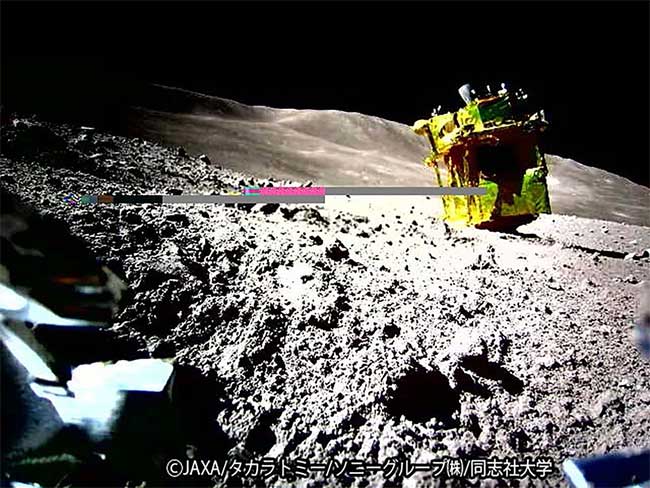Chiba University has established a Space Gardening Research Center to consolidate the latest knowledge in fields such as robotics and gene editing to support plant cultivation on the Moon.

Japan’s Aerospace Exploration Agency (JAXA) released the first images from the Smart Lander for Investigating Moon (SLIM) mission on January 25, 2024. (Photo: AFP/TTXVN)
With the global space exploration activities gaining momentum, scientists from Chiba University in Japan have begun to tackle the challenge of food production in space.
In January 2023, Chiba University established the Space Gardening Research Center to study and consolidate the latest knowledge in fields such as robotics and gene editing for the purpose of cultivating plants on the Moon.
To achieve this goal, the Research Center has constructed a closed environment plant growth laboratory that utilizes artificial light and hydroponic farming. Here, scientists are developing technology to grow eight types of edible plants, including tomatoes, rice, lettuce, soybeans, and potatoes, in an energy-efficient manner on the Moon’s surface, where pressure and gravity are lower than on Earth.
The Center is also researching the development of robots that can handle tasks such as harvesting.
According to scientists, plants on Earth are influenced by strong gravitational forces, with their stems and leaves growing upwards, while their roots delve deep into the water-rich soil. Plants in space will develop differently compared to their counterparts on Earth.
Through experiments, scientists hope to understand the developmental mechanisms at the genetic level and utilize advanced technologies such as gene editing to control plant functions, thereby selecting optimal varieties for growth in space.




















































